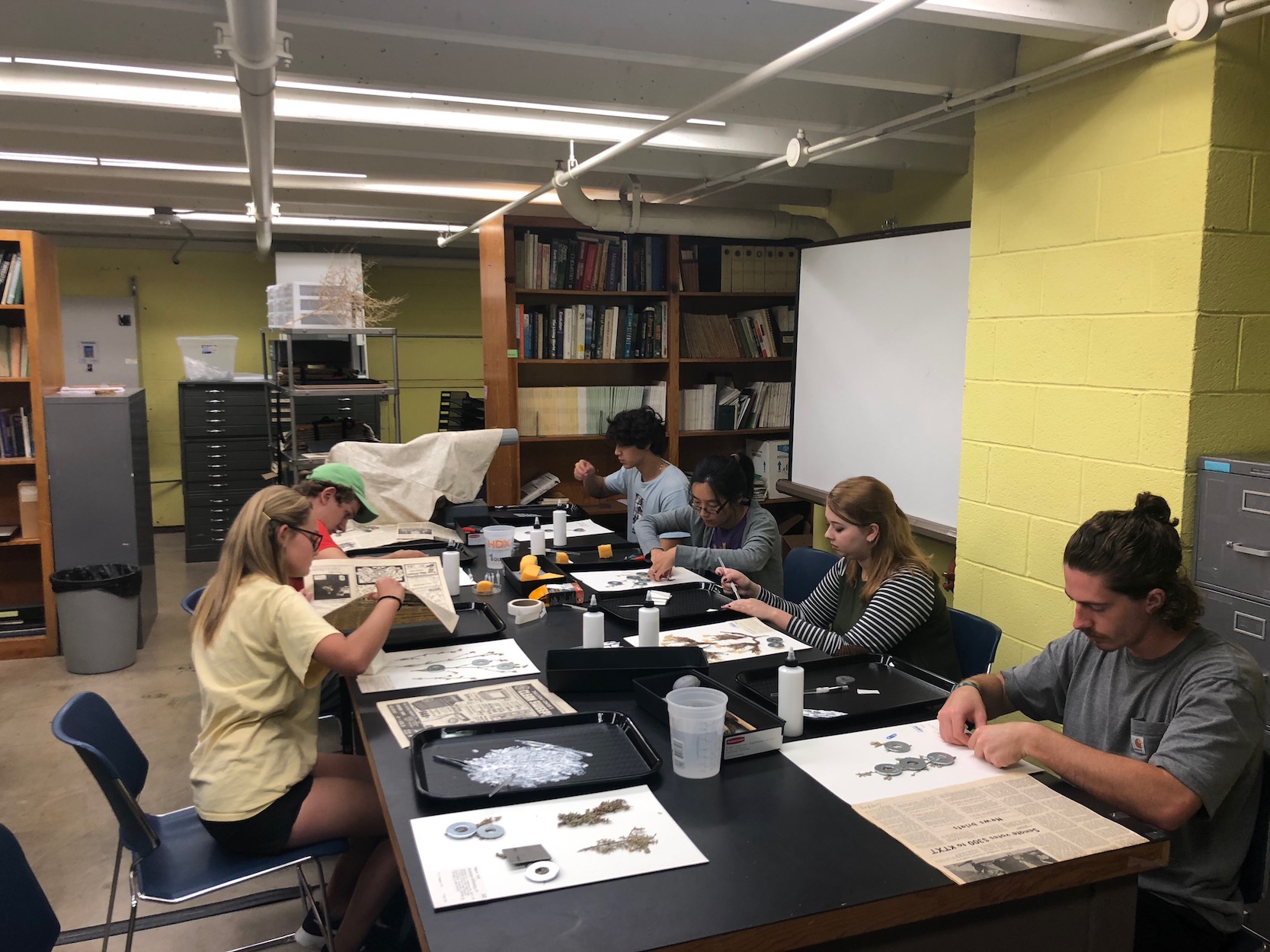Field Botany and Natural History Collections
Course (BIOL4301-012) offered Fall 2023
Instructor: Dr. Matthew Johnson, matt.johnsonobfuscate@ttu.edu
Prerequisites: None, Contact Instructor for Permission to Enroll
Class Hours: Tuesday/Thursday 11:00 – 12:20
Class Location: Herbarium, Biology 714
The E.L. Reed Herbarium can be accessed by taking the elevator up to the 6th floor, and walking across the hall to the west staircase, and walk up to the 7th floor. Please contact the instructor if you need accommodation using the service elevator.
Students are expected to attend at least one weekend day trip in September 2023 to collect specimens.
Expected Learning Outcomes
In this course, students will learn to:
- evaluate and critique current curation practices from multiple disciplines after learning about the basic techniques used within each discipline.
- collect and curate a specimen of a natural history collection from start to finish.
- interpret and discuss primary scientific literature that utilized natural history collections.
Students should demonstrate proficiency in the collection of specimens, mounting, digitizing, and curation of their specimen.
 |
 |
| Mounting specimens in the Herbarium |
Herbarium Specimen from 1974 |
Tentative Schedule Fall 2023
| Week |
Topic |
| Aug. 23 – 27 |
Introduction to Natural History Collections
Mounting Herbarium Specimens Tutorial |
| Aug. 30 - Sept. 3 |
Making field observations
using iNaturalist and field journals |
| Sept. 6 - 10 |
Curation of Natural History Collections
Digitization: Databasing, Imaging, and Georeferencing |
| Sept. 13 - 17 |
Ethics of Natural History Collections: Permits, Colonialism, and Stewardship
The E.L. Reed Herbarium |
| Sept. 20 - 24 |
Plant Taxonomy: Type Specimens and Vouchers
Field Collections: Pressing plants and field journals |
| Sept 27- Oct. 1 |
Use of digital resources for natural history collections (iDigBio, GBIF, iNaturalist)
Participate in WeDigBio |
| Oct. 4 – 8 |
Class time to work on Practical Assignments
Practical due October 7 |
| Oct. 11 – 15 |
Introduction to Class Discussion Project
Introduction to Final Curation Project |
| Oct. 18 – 22 |
In-class workshops for researching class discussion projects
In-class workshops for final curation Projects |
| Oct. 25 – 29 |
Discussion Topic #1 – Colonialism and the creation of natural history collections
Final Project Workshop during class |
| Nov. 1 – 5 |
Discussion Topic #2 – Natural History Collections in Ecology/Evolution
Final Project Workshop during class |
| Nov. 8 – 12 |
Discussion Topic #3– Natural History Collections in Physiology
Final Project Workshop during class |
| Nov. 15 – 19 |
Discussion Topic #4 – Natural History Collections in Genomics
Final Project Workshop during class |
| Nov. 23 |
Discussion Topic #5 - Natural History Collections in Ethnobiology
No Class Nov 26 Thanksgiving |
| Nov. 30 - Dec. 1 |
Curation Project Presentations |
| Dec. 7 |
Final Curation Projects Due |
Methods of Assessing Expected Learning Outcomes
Students will be assessed via:
- Attendance and participation in lecture and hands-on activiites
- Participation in collection events
- In-class practical examination on curation of herbarium specimens
- Student-led discussion in person and online
- Final project and presentation
Participation will be evaluated by attendance and attention in class. Active discussion of class topics in the blackboard forum is expected. Students should attend each class having read any assigned materials.
Students must attend at least one collection event (exact details to be detrmined, but may include a BioBlitz or trip to the TTU Rangelands). Collections made in this course will be held in the TTU E.L. Reed Herbarium, digitized in the TORCH database, and uploaded to a citizen science website such as iNaturalist.
The In-Class practical will consist of individual demonstration of proficiency in the following topics: Field Journal, Pressing Specimens, Curating Specimens, Digitizing Nautral History Collections Data. Students will have in-class time to prepare their practical materials, and may also schedule time to visit the herbarium outside of class hours.
During the second half of the semester, each student will work in a group to lead discussion on the use of herbarium specimens in modern plant science research. Students will be responsible for picking reading materials and will be evaluated based on the quality of discussion generated.
Each student will conduct a final project relevant to the collection, curation, digitization, or research use of natural history collections. The project guidelines are flexible and may include work on new specimens or existing collections in the E.L. Reed Herbarium. Students will present on their project during the final week of classes, and will compile a written report due during exam week.